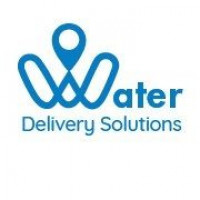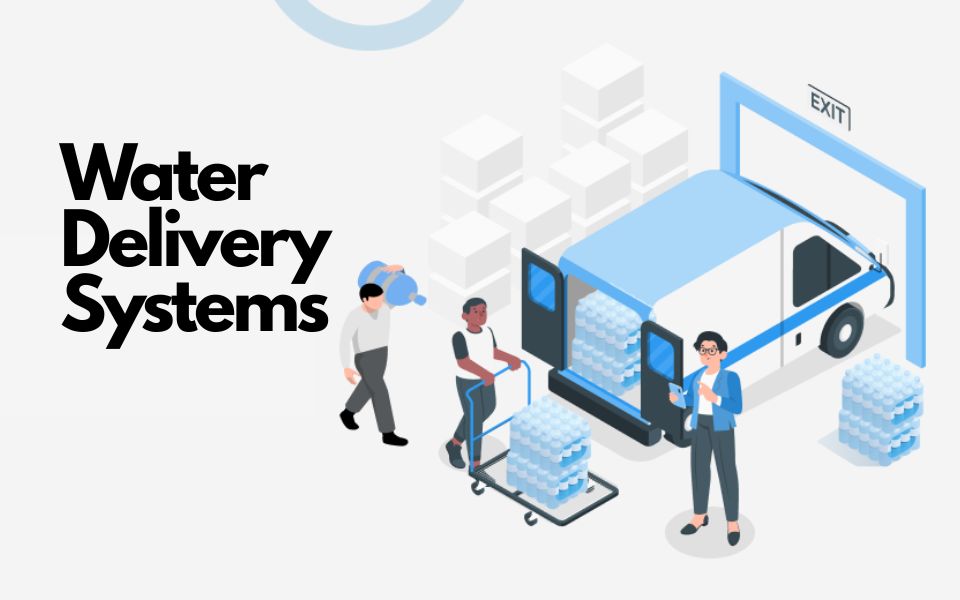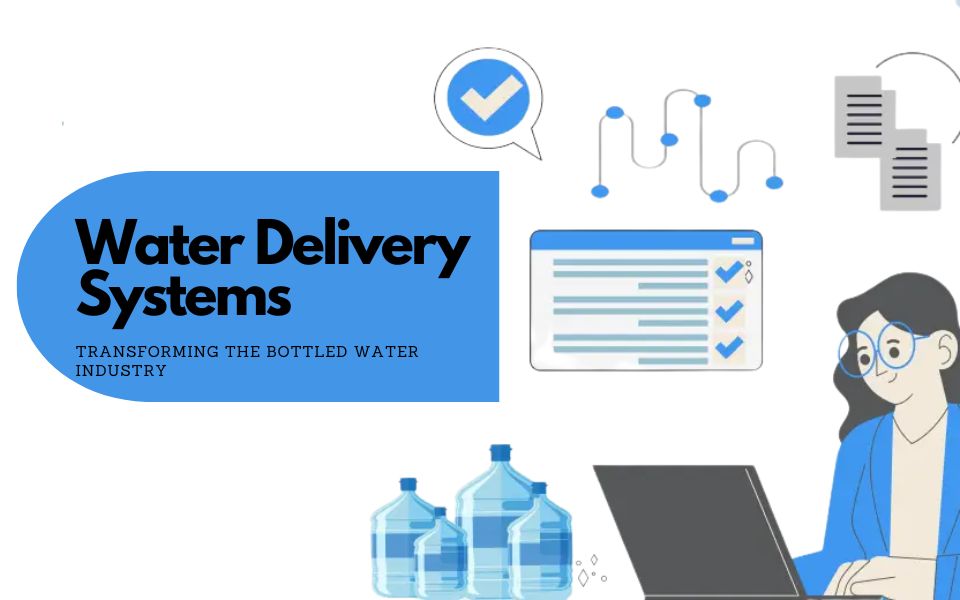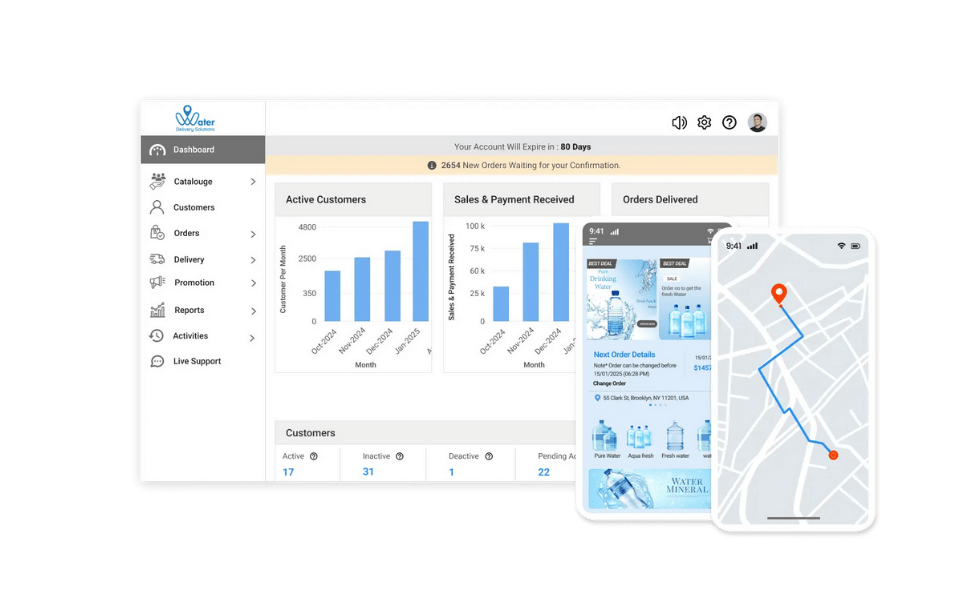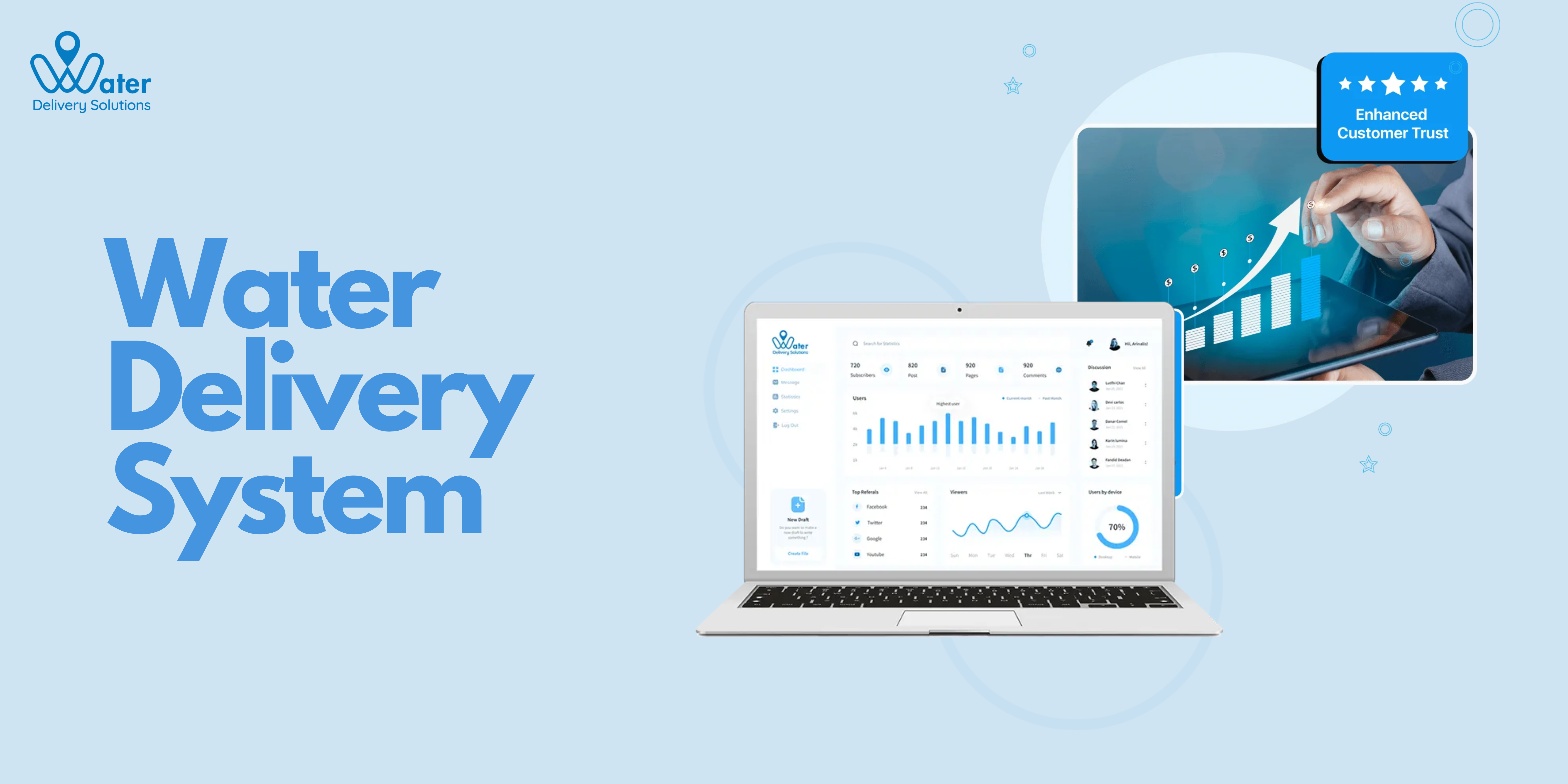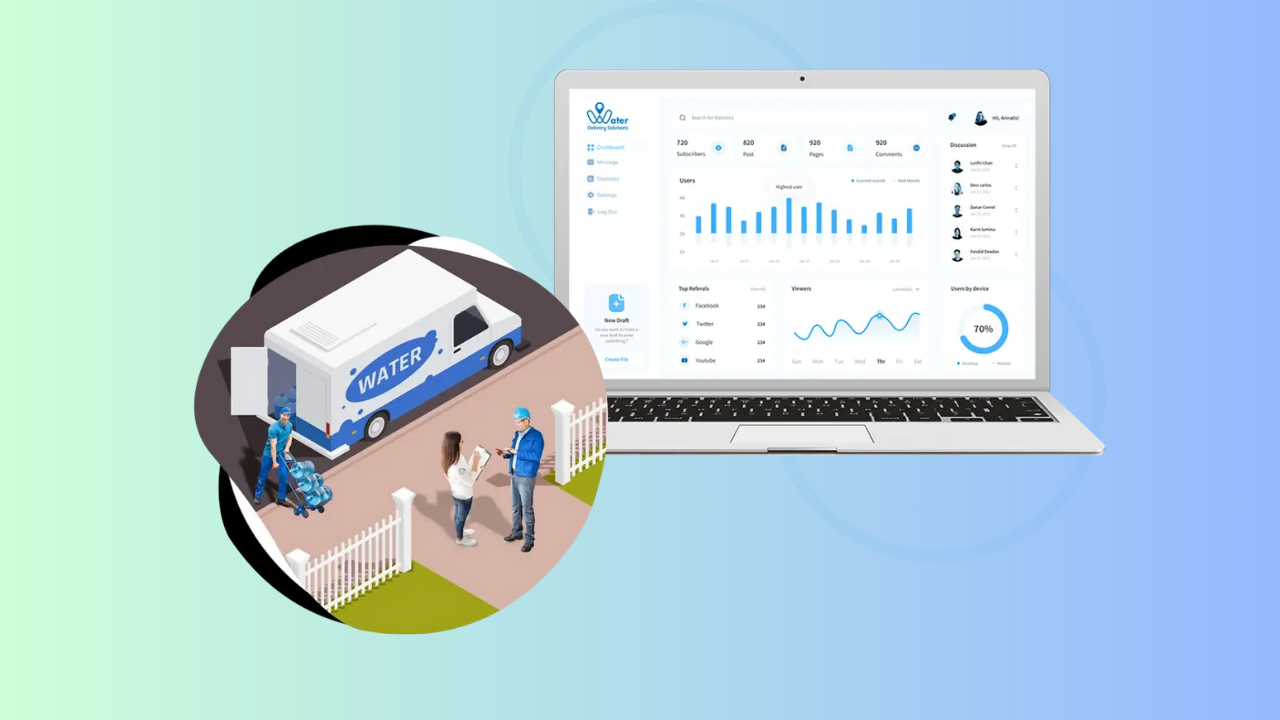Bottled Water Delivery Business: Everything You Need to Know
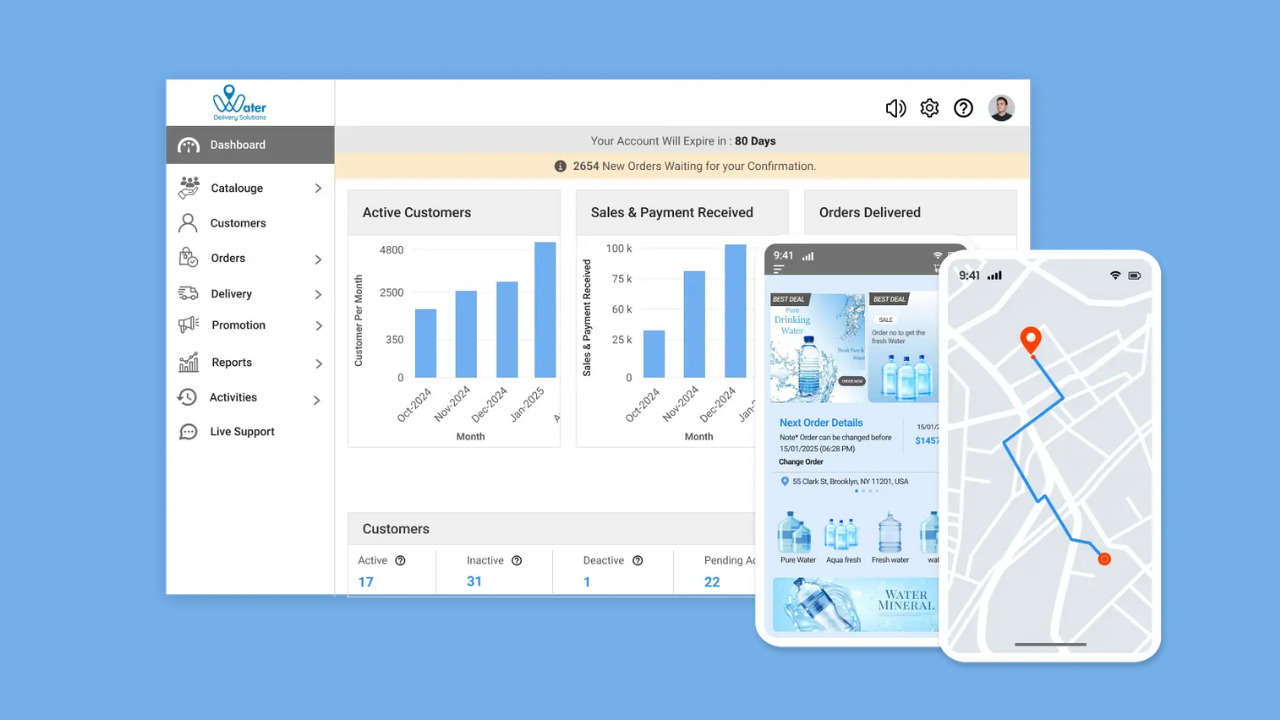
Strong 8k brings an ultra-HD IPTV experience to your living room and your pocket.
With the growing demand for convenience and healthier hydration options, the bottled water delivery business is becoming a highly profitable venture. From households to offices, the need for clean, safe drinking water delivered at the doorstep is on the rise. If you're considering entering this booming industry, this guide will walk you through everything you need to know to launch and grow a successful bottled water delivery business.
Why Start a Bottled Water Delivery Business?
There are several compelling reasons to consider starting a bottled water delivery business:
- High Demand: Bottled water is the most consumed packaged beverage worldwide. Offices, gyms, schools, and households all need regular water supplies.
- Recurring Revenue: Water delivery businesses benefit from repeat customers who subscribe to weekly or monthly delivery schedules.
- Low Startup Costs: With the right planning, you can start with minimal investment and scale as the demand grows.
- Sustainable Growth: As consumers become more health-conscious, the demand for pure, safe drinking water is expected to grow steadily.
Step 1: Conduct Market Research
Before diving into the business, perform comprehensive market research:
- Target Audience: Identify who your ideal customers are — homes, businesses, or institutions.
- Competition Analysis: Look into existing bottled water delivery services in your area. Study their pricing, customer base, delivery options, and reviews.
- Pricing Strategy: Understand what your competitors charge and identify gaps in the market where you can offer more value.
Step 2: Choose a Business Model
There are two common models in the bottled water delivery business:
- Supplier/Distributor Model: You source bottled water from manufacturers and deliver it to customers.
- Manufacturer Model: You purify, bottle, and deliver the water yourself, which involves higher investment but better profit margins.
Choose a model that fits your budget, expertise, and long-term goals.
Step 3: Legal Requirements and Licensing
Every business must comply with local regulations. Key steps include:
- Business Registration: Register your business with the appropriate government authority.
- Health and Safety Permits: Obtain licenses from the health department ensuring your water meets safety standards.
- Vehicle Permits: If you're operating delivery vehicles, make sure they’re licensed for commercial use.
- Insurance: Protect your business with liability, vehicle, and equipment insurance.
Step 4: Set Up Operations
Once the legal groundwork is laid, focus on building the infrastructure:
1. Water Supply and Bottling
- Partner with a certified bottled water supplier or invest in a purification and bottling system if you’re manufacturing your own.
- Choose high-quality, BPA-free bottles and ensure cleanliness in handling and storage.
2. Storage Facility
- Set up a warehouse or storage space that meets health and safety standards for storing bottled water.
3. Delivery Vehicles
- Use small to mid-sized delivery trucks or vans equipped with racks for safe transport of water bottles.
- Ensure drivers are trained in safety and timely delivery.
4. Staffing
- Hire delivery personnel, customer support staff, and operations managers based on your scale.
Step 5: Build an Online Presence
A strong digital presence is crucial to attract and retain customers:
- Website: Create a professional, mobile-friendly website with details about your services, pricing, and delivery schedules.
- Online Ordering System: Offer customers the convenience of placing and managing orders online.
- Social Media: Promote your business on platforms like Facebook, Instagram, and LinkedIn to engage with potential customers.
- Local SEO: Optimize your website and Google Business Profile for local search terms like “bottled water delivery near me.
Step 6: Pricing and Subscription Plans
Offer flexible pricing and subscription models to cater to different needs:
- Per Bottle Pricing: Ideal for small households or occasional orders.
- Weekly/Monthly Plans: Offer discounts on recurring deliveries to encourage subscriptions.
- Bulk Discounts: Attract businesses or large families with volume-based pricing.
Ensure your pricing is competitive while still allowing for healthy profit margins.
Step 7: Marketing Your Business
To build a customer base, invest in both online and offline marketing:
- Flyers and Brochures: Distribute in residential and commercial areas.
- Referral Programs: Reward customers for bringing in new clients.
- Google Ads and Facebook Ads: Target local audiences with specific offers.
- Partnerships: Collaborate with local gyms, offices, and schools for regular delivery contracts.
Step 8: Offer Exceptional Customer Service
Customer satisfaction is key in a delivery-based business:
- Reliable Delivery: Stick to schedules and maintain consistency.
- Communication: Provide clear updates via SMS or email notifications.
- Support: Set up a responsive customer service line for order inquiries and feedback.
- Feedback Collection: Regularly collect reviews to improve your service and build trust online.
Step 9: Scale Your Business
Once you’ve established a strong foundation, look for ways to grow:
- Expand Your Service Area: Gradually include more neighborhoods or nearby towns.
- Add More Products: Consider offering related items like water dispensers, filters, or reusable bottles.
- Invest in Automation: Use CRM software to manage orders, billing, and customer communication efficiently.
- Fleet Expansion: Add more delivery vehicles as demand increases.
Challenges to Consider
Every business comes with its own set of challenges:
- Logistics: Route optimization and vehicle maintenance are critical.
- Storage: Bottled water must be stored under hygienic conditions to maintain quality.
- Competition: You’ll need to constantly innovate to stay ahead in a competitive market.
- Customer Retention: Keeping customers satisfied and loyal requires consistent service quality.
Also Read: How to Start a Bottled Water Delivery Business?
Final Thoughts
Starting a bottled water delivery business is a promising venture in today’s health-conscious and convenience-driven world. With proper planning, legal compliance, and a customer-focused approach, you can build a thriving business that delivers consistent revenue and long-term growth.
Whether you’re starting small or aiming to become a regional distributor, success depends on your ability to deliver clean water efficiently, reliably, and at a competitive price.
Note: IndiBlogHub features both user-submitted and editorial content. We do not verify third-party contributions. Read our Disclaimer and Privacy Policyfor details.

